Ditapis dengan
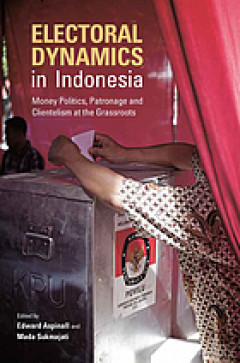
Electoral dynamics in Indonesia : money politics, patronage and clientelism a…
- Edisi
- -
- ISBN/ISSN
- 9789814722049
- Deskripsi Fisik
- xix, 433 hlm, 24 cm
- Judul Seri
- -
- No. Panggil
- T 324.959 804 Ele
- Edisi
- -
- ISBN/ISSN
- 9789814722049
- Deskripsi Fisik
- xix, 433 hlm, 24 cm
- Judul Seri
- -
- No. Panggil
- T 324.959 804 Ele
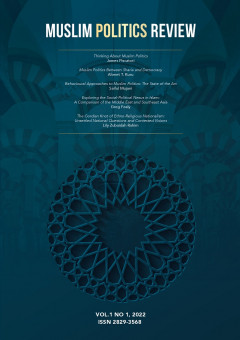
Exploring the social-political nexus in islam: a comparison of the Middle Eas…
One of the fulcrums of change in political Islam is the relationship between traditional patterns of Islamic politics, which focus upon the pursuit and wielding of formal power, particularly with the aim of enacting of shari’a law, and the more recent emergence of dynamic social spheres of Islamic activism, which emphasise values and moral order and operate with considerable autonomy from Isl…
- Edisi
- Muslim Politics Review, vol. 1, no. 1 Juni 2022
- ISBN/ISSN
- 2829-3568
- Deskripsi Fisik
- 18 hlm. 59-77; 26 cm.
- Judul Seri
- -
- No. Panggil
- J 297.272 Mus

Behavioural approaches to muslim politics: The state of the art
The behavioural approach to Muslim politics in academic literature is a recent development. The approach emerged only in the early twenty-first century, largely as most Muslim-majority nations have been autocracies constraining the freedom of speech required to study political attitudes and behaviour. Many behaviourally driven studies have examined dimensions of Islam as predictors of political…
- Edisi
- Muslim Politics Review, vol. 1, no. 1 Juni 2022
- ISBN/ISSN
- 2829-3568
- Deskripsi Fisik
- 16 hlm. 41-57; 26 cm.
- Judul Seri
- -
- No. Panggil
- J 297.272 Mus
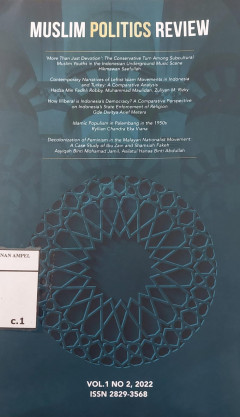
'More than just devotion ': The conservative turn among subcultural muslim yo…
Scholars of Indonesian politics and Islam use the phrase ‘conservative turn’ to explain the increasing religious influence in contemporary Indonesia’s social, political, and cultural life. Although their literature provides insightful explanations about this trend, scholars fail to include subcultural Muslim youths in their analyses. The term ‘subcultural youths’ in this context refer…
- Edisi
- Muslim Politics Review, vol. 1, no. 2 Des 2022
- ISBN/ISSN
- 2829-3568
- Deskripsi Fisik
- 35 hlm. 117-152; 26 cm.
- Judul Seri
- -
- No. Panggil
- J 297.272 Mus

Islamic populism in Palembang in the 1950s
This study discusses the emergence of Islamic populism in Palembang in the 1950s. In the official narratives of Indonesian history, the political turbulence in Palembang that occurred in the mid-1950s is often associated with a regional Army commander-led rebellion. This research instead finds that Islamic groups played a crucial role in developing the preliminary conditions before the military…
- Edisi
- Muslim Politics Review, vol. 1, no. 2 Des 2022
- ISBN/ISSN
- 2829-3568
- Deskripsi Fisik
- 17 hlm. 209-226; 26 cm.
- Judul Seri
- -
- No. Panggil
- J 297.272 Mus
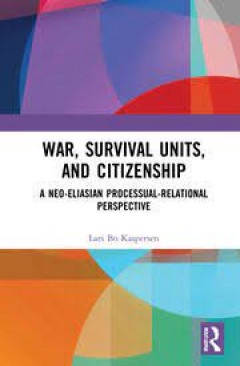
War, survival units, and citizenship : a neo-eliasian processual-relational p…
- Edisi
- -
- ISBN/ISSN
- 97890367560959
- Deskripsi Fisik
- vii, 272 hlm, 24 cm
- Judul Seri
- -
- No. Panggil
- U 321.1 Lar w
- Edisi
- -
- ISBN/ISSN
- 97890367560959
- Deskripsi Fisik
- vii, 272 hlm, 24 cm
- Judul Seri
- -
- No. Panggil
- U 321.1 Lar w
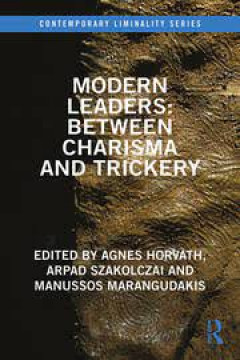
Modern leaders : Between charisma and trickery
- Edisi
- -
- ISBN/ISSN
- 9780367522537
- Deskripsi Fisik
- xi, 233 hlm, 24 cm
- Judul Seri
- -
- No. Panggil
- U 303.34 Mod
- Edisi
- -
- ISBN/ISSN
- 9780367522537
- Deskripsi Fisik
- xi, 233 hlm, 24 cm
- Judul Seri
- -
- No. Panggil
- U 303.34 Mod
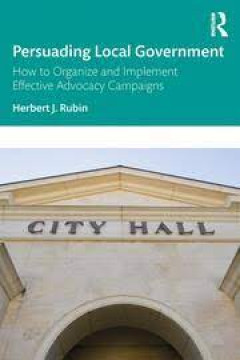
Persuading local government: how to organize and implement effective advocacy…
Herbert J. Rubin.
- Edisi
- -
- ISBN/ISSN
- 9781032201719
- Deskripsi Fisik
- x, 231 hlm., 24 cm.
- Judul Seri
- -
- No. Panggil
- U 352.743 Rub p
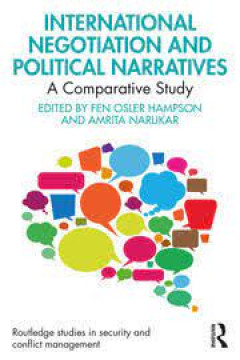
International negotiation and political narratives: a comparative study
edited by Fen Osler Hampson and Amrita Narlikar.
- Edisi
- -
- ISBN/ISSN
- 9781032066486
- Deskripsi Fisik
- xi, 298 pages : illustrations ; 25 cm.
- Judul Seri
- Routledge studies in security and conflict management
- No. Panggil
- T 327.17 Fen i
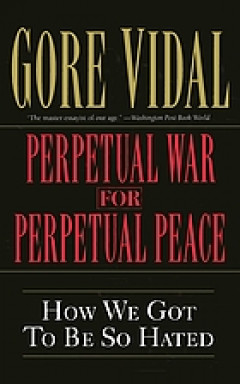
Perpetual war for perpetual peace : how we got to be so hated
- Edisi
- -
- ISBN/ISSN
- 9781560254058
- Deskripsi Fisik
- ix, 147 hlm, 24 cm
- Judul Seri
- -
- No. Panggil
- IIC 172 Per g
- Edisi
- -
- ISBN/ISSN
- 9781560254058
- Deskripsi Fisik
- ix, 147 hlm, 24 cm
- Judul Seri
- -
- No. Panggil
- IIC 172 Per g
 Karya Umum
Karya Umum  Filsafat
Filsafat  Agama
Agama  Ilmu-ilmu Sosial
Ilmu-ilmu Sosial  Bahasa
Bahasa  Ilmu-ilmu Murni
Ilmu-ilmu Murni  Ilmu-ilmu Terapan
Ilmu-ilmu Terapan  Kesenian, Hiburan, dan Olahraga
Kesenian, Hiburan, dan Olahraga  Kesusastraan
Kesusastraan  Geografi dan Sejarah
Geografi dan Sejarah